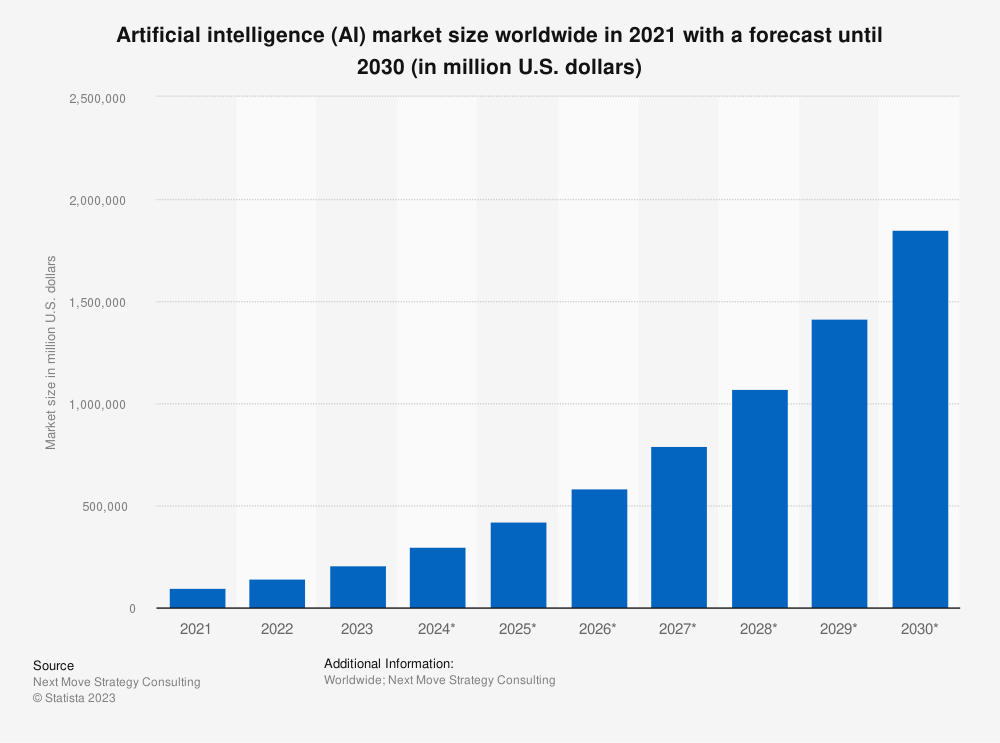In the rapidly evolving landscape of artificial intelligence (AI), a new development has emerged, intriguing and mystifying the tech world: Project Q*, or Q Star. This project, spearheaded by OpenAI, has recently garnered significant attention following the dramatic events involving OpenAI’s CEO, Sam Altman. Amidst speculation and mystery, the question arises: What is Q Star, and why is it pivotal in AI advancements?
OpenAI’s Q*: An Overview
OpenAI, a prominent figure in AI research, has always been at the forefront of cutting-edge technology. The recent buzz around Q* began after Reuters reported a letter from OpenAI’s staff researchers to the board, hinting at a breakthrough potentially surpassing human intelligence across various fields. This revelation coincided with the unexpected firing and return of CEO Sam Altman, although the reasons behind these events remain undisclosed. The enigma surrounding Q* has only intensified the curiosity and speculation among industry watchers and the general public.
What is Q Star: Fact or Fiction?
The core of the intrigue lies in the potential of Q* as a breakthrough in AI. Neither OpenAI nor its significant backer, Microsoft, have confirmed the project’s nature or capabilities, leaving room for speculation and skepticism. The limited information suggests that Q* can solve specific mathematical problems at an elementary level. However, this revelation has been met with doubt about the project’s proper advancement level.
Q* and the AI Market
The realm of AI, where Q* resides, is a landscape of constant innovation and growth. AI technologies, inspired by human cognitive processes, have evolved significantly over the past century, transforming from the subject of science fiction to reality. Today, AI encompasses machine learning, robotics, and artificial neural networks (ANNs), influencing various industries and creating new technological frontiers.
Q*’s emergence comes when AI is not just about linguistic, mathematical, and logical reasoning but also makes strides toward emotional intelligence and sequential learning. The current AI ecosystem, from DeepMind’s advancements to the growing interest of Venture Capital in AI startups, underscores this field’s dynamic and rapidly evolving nature.
Theoretical Underpinnings of Q*
Despite the limited information available, experts can’t answer the question: What is Q Star? According to Barron’s, Q* might be a fusion of two advanced algorithms, Q-learning and A*. Q-learning, a form of reinforcement learning, involves trial-and-error methods, allowing an AI to learn from its interactions with its environment. A*, on the other hand, is an algorithm that enhances the efficiency of solution-seeking processes by predicting potential obstacles, thereby reducing computational costs.
So… What is Q Star? This speculated combination of Q-learning and A* echoes previous AI breakthroughs, such as the development of AlphaGo. AlphaGo’s success in mastering the Chinese game of Go was partly due to integrating learning and search technologies, which Q* might also employ.
Implications of Q* in AI Development
If Q* represents a significant leap in AI, its implications could be far-reaching. Firstly, the project could mark a new era in AI’s ability to process and solve complex problems, potentially surpassing human-level intelligence in specific domains. However, it’s crucial to temper expectations. As Jim Fan from Nvidia points out, advancements in AI, like Q*, do not necessarily equate to improvements in creative tasks such as writing poetry or telling jokes. The human element in creativity still holds a unique place that AI has yet to replicate fully. Furthermore, the development of Q* could significantly impact OpenAI’s market position and its partnership with critical investors like Microsoft.

Q* and the Broader AI Market
The emergence of Q* comes at a pivotal moment in AI development. The current AI ecosystem is witnessing exponential growth, driven by advancements in machine learning, robotics, and ANNs. The integration of these technologies is not just transforming industries but also shaping new ones.
The potential of Q* must be contextualized within this larger picture. The AI market is evolving rapidly, with significant investment flowing into AI startups and major corporations like Google, IBM, and Microsoft leading innovation. The growth of AI is as much about the software and hardware advancements as it is about the sheer volume of big data available, which fuels the development and refinement of AI algorithms.
Future Prospects of Q*
The buzz surrounding Q* is not just about its current capabilities but also about its potential to redefine AI’s boundaries. If Q* lives up to its speculated promise, it could mark a significant milestone in the journey towards Artificial General Intelligence (AGI) – AI that exhibits human-like reasoning and cognitive skills. This leap could transform how AI is integrated into various sectors, ranging from healthcare to finance, education, and more.
Industry-Wide Impact
In the automotive industry, advancements like Q* could accelerate the development of autonomous driving technology. AI’s ability to process and analyze vast amounts of data could revolutionize diagnostics and personalized medicine in healthcare. The education sector could see a transformation with AI-driven customized learning experiences, while in finance, AI could offer more sophisticated wealth management and investment strategies.
Each of these sectors stands to benefit from AI’s enhanced cognitive abilities, potentially leading to more efficient, accurate, and personalized services and products.
Societal Implications
The development of Q* and similar AI projects raises important questions about the role of AI in society. As AI systems become more advanced, issues such as ethical AI use, data privacy, and the potential displacement of jobs become increasingly pressing. Ensuring AI developments like Q* are used responsibly and ethically will be crucial in navigating these challenges.
Additionally, the democratization of AI technology is vital. Ensuring that the benefits of such advanced AI are accessible to a broad range of industries and not just a few tech giants will be critical for fostering an inclusive and equitable technological future.
Q*, with its speculated capabilities and potential, represents more than just a technological breakthrough; it embodies the next step in the evolution of AI. As we venture into this new era, balancing excitement and innovation with caution and responsibility is essential. The journey towards AGI, with projects like Q* at the helm, promises a future where AI’s role in our lives is more integral and impactful than ever before.
The development of Q* and its ilk is not just a story of technological advancement but a narrative about the future we are shaping – a future where AI is a tool and a partner in our collective journey toward progress and understanding.







